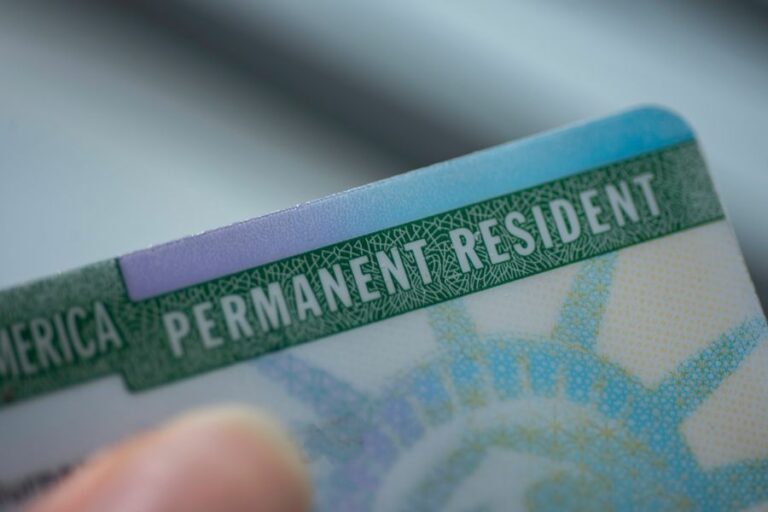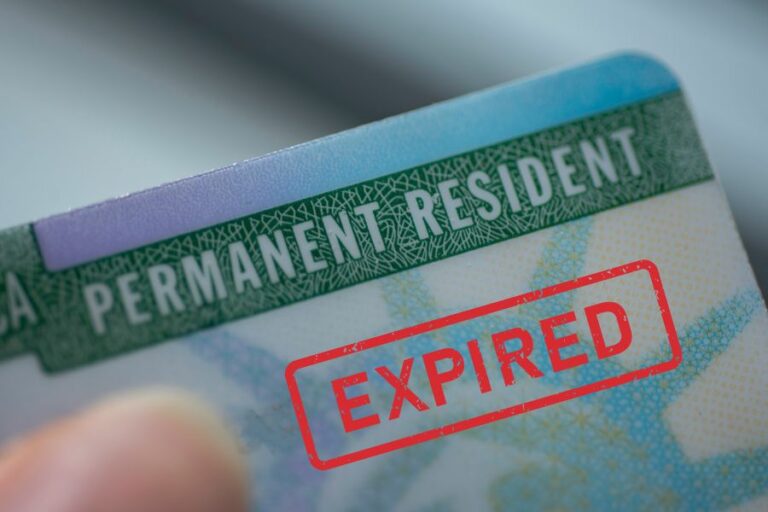Green Card Holders: 5 Ways to Bring Your Parents to the U.S.
As a Green Card holder, you might wonder if you have the ability to petition (aka sponsor) your parents for permanent residency in the United States.
The straightforward answer is no; Green Card holders are not eligible to directly petition for their parents1. This privilege is reserved for U.S. citizens who are at least 21 years old.
| Family Member | Can Green Card Holders Sponsor? | Can U.S. Citizens Sponsor? |
|---|---|---|
| Spouse | Yes | Yes |
| Unmarried Children Under 21 | Yes | Yes |
| Unmarried Children 21+ | Yes (with longer waiting period) | Yes |
| Married Children | No | Yes (of any age) |
| Parents | No | Yes |
| Siblings | No | Yes |
While green card holders can’t petition for their parents, this doesn’t close all doors for your parents to become residents of the US. There are several alternative strategies that can facilitate your parents’ journey to the U.S.
This guide delves into these options, providing you with a comprehensive understanding of how you can navigate U.S. immigration rules to reunite with your parents.
Keep reading to learn about the various paths that can lead to your parents living with you in the U.S. permanently.
5 Ways to Bring Your Parent to the United States Permanently
As a Green Card holder, bringing your parents to the U.S. permanently involves navigating through specific immigration pathways.
Here are the most viable options, some of which do not require the Green Card holder to initiate the petitioning process:
1. Naturalization:
If you’re close to meeting the requirements for naturalization (typically 5 years of permanent residency2), becoming a U.S. citizen allows you to petition your parents without the limitations faced by Green Card holders.
More over, there is no visa cap as a US citizen: Parent sponsorships are under the immediate relative category, exempt from annual visa limits3.
Eligibility for Naturalization:
- Residency: Must have lived in the U.S. for at least 5 years as a permanent resident (3 years if married to a U.S. citizen).
- Physical Presence: Required to be physically present in the U.S. for over half of the 5-year period.
- Good Moral Character: Demonstrating adherence to U.S. laws and values.
- English and Civics Test: Passing a test on U.S. history, government, and basic English.
Naturalization Process:
- Form N-400: Filing the Application for Naturalization.
- Biometrics and Background Check: Following the application submission.
- Interview and Tests: Conducted by USCIS.
- Oath of Allegiance: The final step to become a U.S. citizen.
Once you become a U.S. citizen, to petition your parents, you would need to file Form I-130, Petition for Alien Relative, for each parent. (This is separate from the naturalization process but is the key form for family-based immigration sponsorship.) The process can take several months to over a year.
Here is a recent story of a naturalized US citizen who petition for their parents, and it only took 6 months:
2. Petition by Other U.S. Citizen Family Members:
This is an obvious choice, yet it’s essential to include it in our discussion, even though we understand you likely have considered it.
If you, as a Green Card holder, have siblings who are U.S. citizens, this presents an alternative avenue for bringing your parents to the United States. U.S. citizens who are adult sons and daughters (21+ years old) can potentially sponsor their parents for U.S. permanent residency, commonly referred to as a Green Card.
In this case, the U.S. citizen sibling can typically sponsor their parents as immediate relatives, and the parents should have shorter waiting times compared to other family-sponsored categories.
If you do not have a sibling who is a U.S. citizen, this option is generally not available because there are no other eligible family members in this specific case. However, if the Green Card holder’s grandparents are U.S. citizens, they can likely apply to petition for their adult children for immigration. This is just not a common scenario.
Note: US citizen spouses of Green Card holders are NOT eligible to apply for their in-laws4.
The process to apply for your parent’s green card involves the sponsoring U.S. citizen (son or daughter) filing a petition on behalf of their parents. This petition, known as Form I-130 (Petition for Alien Relative), establishes the familial relationship and initiates the immigration process for the parents.
Furthermore, the petitioning U.S. citizen son or daughter will need to demonstrate their ability to financially support their parents to prevent them from becoming public charges in the United States. This requirement is typically fulfilled by submitting an Affidavit of Support (Form I-864) as part of the application process.
While green card holders can’t petition for parents, they can financially sponsor them as joint sponsors if a U.S. citizen sibling applies for the parents.
3. Employment-Based Visas & Investor Visas:
If your parents have specific job skills or qualifications, they may be eligible for employment-based visas, leading to permanent residency.
Additionally, your parents can apply for an investor visa (EB-5), which is part of the employment-based visa category.
Choosing the best EB visa for a parent largely depends on their individual qualifications, professional background, and investment capabilities.
Here’s a brief overview of suitability and effort required for each category:
| EB Visa Type | Parental Suitability | Effort Required |
|---|---|---|
| EB-1 | Outstanding record in academia, arts, business | High (Proof of extraordinary abilities) |
| EB-2 | Advanced degree or exceptional ability in arts, sciences, business | High (Labor certification, job offer, qualification proof) |
| EB-3 | Professional skills, advanced degrees, 2+ years of experience | Moderate to High (Labor certification, job offer) |
| EB-4 | Specific cases like religious workers, international organization retirees, | Varies (Depends on category) |
| EB-5 | Ability to make a significant investment in U.S. business ($900k in Targeted Employment Areas and $1.8M elsewhere in the country5). | High (Substantial capital investment, job creation) |
4. Diversity Visa Lottery:
This is a less direct method where your parents can independently apply for a green card if they come from an eligible country, offering a limited number of visas annually.
The Diversity Visa (DV) Lottery, often referred to as the Green Card Lottery, is a unique immigration program that provides an opportunity for individuals from countries with historically low rates of immigration to the United States to apply for a chance to obtain a U.S. Green Card.
There are few guarantees in life, and the DV lottery is not one of them, but why not have your parents try?
Here’s how it works:
- Eligibility: Applicants must be natives of eligible countries, determined by the U.S. Department of State based on their country of birth. They must also have at least a high school education or equivalent.
- Annual Selection: The DV Lottery is held once a year, with a limited number of Green Cards available, determined by the U.S. government. Your parents must file their application within the given time frame provided by the DOS.
- Random Selection: Participants are chosen randomly through a computer-generated lottery system.
- Application Process: Interested individuals submit an online application during the annual registration period, providing biographical information and a recent photo.
- Notification: Selected individuals are notified on the official DV Lottery website to avoid fraud. Note: Winning the lottery is just the first step and does not guarantee a Green Card, as further steps and eligibility requirements must be met during the visa application process. In fact, ~125,000 people are selected each year, but only ~50,000 DV Green Cards are allotted6. The good news is if you do things correctly, you have a good chance, as around 40% of applicants are disqualified due to formal or deadline errors in their application7, hence the strategic over-selection by the Department of State.
- Visa Application: Winners go through a visa application process, including an interview at a U.S. embassy or consulate in their home country. This is where many applicants fall out.
- Immigrant Visa: Successful applicants receive immigrant visas, granting them U.S. permanent residency (Green Cards) for living, working, and studying in the U.S.
- Family Inclusion: DV Lottery winners can often include their spouses and unmarried children under 21 in their visa application. Family member visas count toward the allotted 55,000 DVs per year.
While the DV Lottery provides a unique immigration opportunity, it’s important to recognize the low odds of winning due to high demand.
Moreover, it is a lengthy process, usually taking 7 months to be notified if you won, then another ~14 months to receive a Green Card.
If either of your parents were successful in the Diversity Visa (DV) Lottery, both of them would be eligible to receive a Green Card. Furthermore, it’s advantageous for both parents to apply if they can, as this approach may slightly improve their overall chances of success. This is because any eligible immediate family member has the opportunity to apply, thereby potentially increasing the odds of winning in the lottery.
Depending on which country they are from, their chances will vary too.
5. Humanitarian Programs & Special Immigrant Categories:
In certain rare situations, humanitarian programs like asylum or refugee status can be an option. These protections are designed for individuals facing serious threats in their home countries, and parents may be eligible if they meet specific criteria, often involving a credible fear of persecution or harm.
It’s crucial to consult legal experts specializing in asylum and refugee law for guidance, as these cases require detailed documentation and legal representation.
Additionally, depending on your parents’ circumstances, they might qualify for a Special Immigrant Visa (SIV). This type of Green Card is specific to certain groups, such as Afghan and Iraqi translators.
Note that EB-4 is a broader category covering various special immigrants, like religious workers or international employees. Choose EB-4 if your parents meet its criteria. Opt for an SIV if your parents have unique contributions, like supporting the U.S. military in Afghanistan or Iraq.
Summary Table of Immigration Options for Parents of Green Card Holders
| Method | Description |
|---|---|
| Naturalization | Become a U.S. citizen after 5 years of permanent residency. Sponsor parents with no cap. |
| Petitioning by U.S. Citizen Family | U.S. citizen siblings can sponsor parents for faster processing. |
| Employment-Based & Investor Visas | Eligibility for EB 1-4 visas varies based on qualifications. Investment is required for EB-5. |
| Diversity Visa Lottery | Independent application for individuals from eligible countries. Both parents can apply to increase odds. |
| Humanitarian & SIVs | Options for asylum, refugee status based on threats. SIVs for specific contributions. |
Now, let’s get into some frequently asked questions about green card holders getting their parents to the USA…
FAQs
Yes, as a Green Card holder, you can invite your parents to visit the United States. They can apply for temporary visitor visas, such as tourist visas (B-2 visas), to visit you for a limited period. B-1 business visas are also an option.
No, U.S. citizen spouses cannot directly sponsor their spouse’s parents (in-laws) for a Green Card. Only certain family members, such as spouses, unmarried children, and parents of U.S. citizens, are considered immediate relatives and can be sponsored for a Green Card. In-law relationships do not fall under the immediate relative category.
No, U.S. citizen children cannot directly sponsor their grandparents (the parents of their own parents) for a Green Card. Grandparents are not considered immediate relatives for immigration purposes. U.S. citizens can typically sponsor their parents and unmarried children (under 21) as immediate relatives, but the sponsorship of grandparents falls under a different family-sponsored immigration category (Fourth Preference group, which has longer waiting times).
Generally, U.S. citizens can sponsor their parents, as well as their siblings, spouses, and unmarried children. In other words, immediate family members. Green Card holders cannot sponsor their parents but can sponsor their spouses and unmarried children (any age if they are unmarried). Note: In the context of immigration, “unmarried” can include individuals who are widowed or divorced as long as they have not remarried during the immigration process.
Generally, Green Card holders can only sponsor their immediate family members, specifically spouses and unmarried children, and they can sponsor both at the same time. Parents, siblings, grandparents, nieces, nephews, in-laws, and more distant relatives typically do not fall under the categories eligible for sponsorship by Green Card holders.

Benefits of Parents Obtaining Green Card
The benefits of obtaining a Green Card (permanent residency) for parents of a U.S. citizen are significant and can greatly enhance their quality of life in the United States. Here are some of the key benefits:
- Lawful Permanent Residency: Parents with a Green Card become lawful permanent residents of the United States, which allows them to live and work in the U.S. indefinitely.
- Family Reunification: It enables family reunification, allowing parents to live with their U.S. citizen child and spend more time with family members.
- Work Authorization: Parents with a Green Card typically have the right to work in the United States, giving them access to employment opportunities.
- Access to Healthcare: They may be eligible for certain government-sponsored healthcare programs and may purchase private health insurance.
- Education Benefits: Green Card holders can enroll in educational programs, including language courses, and may qualify for in-state tuition rates at colleges and universities.
- Social Security and Retirement Benefits: Parents can become eligible for Social Security benefits upon reaching retirement age and may also have access to other retirement benefits.
- Protection under U.S. Laws: Green Card holders are protected under U.S. laws and have access to the legal system to seek justice and protection of their rights.
- Travel Flexibility: They can travel freely in and out of the United States, although extended periods abroad may affect their Green Card status. “A Green Card is valid for readmission to the United States after a trip abroad if you do not leave for longer than 1 year. If your trip will last longer than 1 year, a reentry permit is needed.”8
- Path to U.S. Citizenship: While parents do not receive U.S. citizenship automatically with a Green Card, they may be eligible to apply for naturalization after meeting certain residency requirements.
- Access to Government Services: Green Card holders can access various government services, including social services and assistance programs, if needed.
Considerations for Parents Getting Green Cards
- If your parents are in the U.S. on a tourist visa and you (or an eligible sibling) want to apply for their adjustment of status, be aware that they can’t leave the U.S. until they have their green card or work permit with advanced parole.
- Consider whether your parents truly want to permanently live in the U.S. If they plan to travel frequently or for lengthy time periods (365 consecutive days abroad) while on a green card, getting a green card might not be the best option, as it could risk them losing their permanent resident status.
Conclusion:
While Green Card holders are unable to petition for their parents, the methods we’ve explored in this article offer a potential path to reunification. With careful planning, professional guidance, and unwavering determination, the promise of family unity in the land of opportunity becomes a cherished possibility.
We wish you success in your journey to explore these avenues and create lasting memories with your loved ones in the United States.
References:
- https://www.uscis.gov/family/family-of-us-citizens/bringing-parents-to-live-in-the-united-states-as-permanent-residents
- https://www.uscis.gov/sites/default/files/document/brochures/M-1051.pdf
- https://mx.usembassy.gov/visas/family-based-immigration/#:~:text=There%20are%20no%20numerical%20limitations%20on%20Immediate%20Relatives%20immigrants.&text=Persons%20seeking%20to%20immigrate%20in,Permanent%20Resident%20as%20described%20below.
- https://mx.usembassy.gov/visas/family-based-immigration/#:~:text=US%20citizen%20grandparents%2C%20aunts%2C%20uncles,see%20website%20or%20the%20website.
- https://www.uscis.gov/working-in-the-united-states/permanent-workers/eb-5-immigrant-investor-program
- https://www.uscis.gov/green-card/green-card-eligibility/green-card-through-the-diversity-immigrant-visa-program
- https://www.green-card.com/green-card-through-green-card-lottery/#:~:text=Participation%20in%20the%20annual%20Green,deadline%20errors%20in%20their%20application.
- https://www.uscis.gov/green-card/after-we-grant-your-green-card
- https://www.uscis.gov/family/family-of-green-card-holders-permanent-residents








